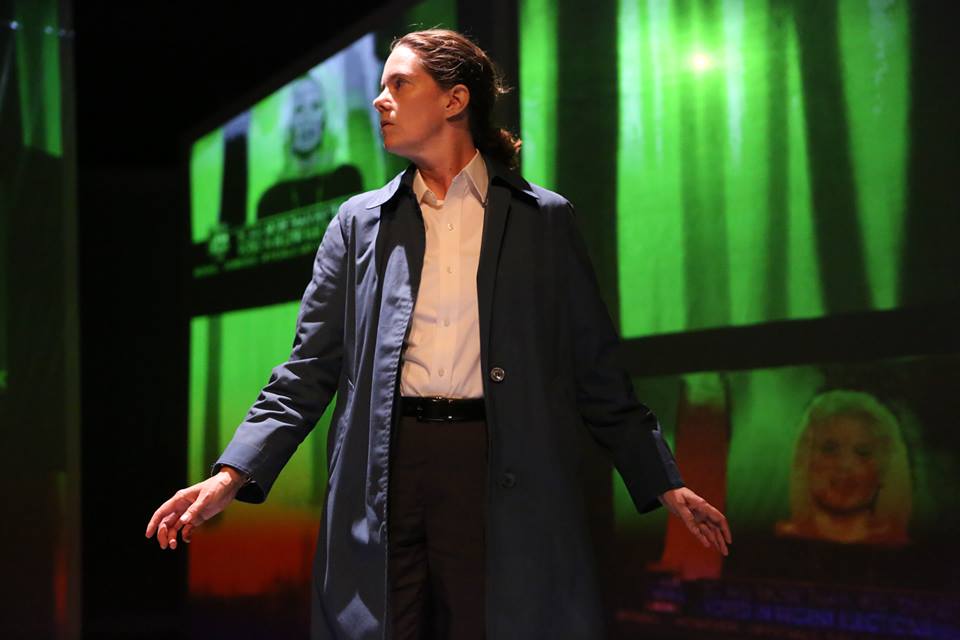Selma ‘65: A Review Two CUA Professors perform show in honor of Civil Rights movement
By Stephen Fasulo II
Selma ‘65 is the intersecting story of two people heavily involved with the Civil Rights Movement. One is an undercover FBI informant, and the other is an overzealous house mother with aspirations of grandeur.
I first have to say that I liked the understated set design and minimalistic props.

Photo Credit: Stephen Schreiber
The costume design of the main characters, each played very well by Marietta Hedges, was brilliant in its simplicity as well. Hedges’ pulled-off playing two characters by using body language and posture as well as a small set of accessories. It was a gamble that could have faltered in lesser hands.
The performance is strong, and the two characters feel like fully developed human beings, even though they are talking and interacting with air. That, perhaps, is the odd strength – and weakness – of the play. The characters have to portray imagined interactions. It’s a credit to the lead, who is the only actress, that this isn’t jarring. However, it sometimes becomes uncomfortable, which is no fault of her own.
The character of the housewife, Viola Liuzzo, however, is grating. Her story is presented as the framing device and told from her perspective as a person in purgatory, but it isn’t compelling. She is just boring, and her conversations with ‘Leroy,’ her partner in crime transporting protesters from the titular march, are often stilted and forced.
She consistantly tries to prove her devotion to the cause of Civil Rights. She’s constantly trying to tell Leroy she’s not racist because she has a black friend. She laments her bad relationship with her husband and her children, which is created by her own all-encompassing passion for the social justice cause.
On the other hand, the male character, Tommy Rowe, is interesting. He repeatedly has tense conversations with his FBI handler about his undercover work in the KKK.
He’s got a bad relationship with his family, but we don’t see them. His family is used to contrast the relationship Viola has with her family. The challenge is that the story doesn’t show other characters, so character traits are revealed through actions described in conversation with other characters. That’s the entirety of the story.
When the Rowe is talking about the trials involved with infiltrating what could be considered a domestic terror group, it’s more interesting and compelling than listening to Liuzzo wax poetic about regrets and passions involved in pursing social justice change.
Ultimately, the purgatory sub-plot involving Viola is cliched, and Rowe is far more interesting as a character.
I liked the play a lot, it was well performed and incredibly interesting. I had absolutely no idea about what happened to these people. It was a great play, but it was a large and abrupt unwelcome transition from The Departed to Lifetime presents: Crusader’s Purgatory. I just wished it transitioned more easily.







